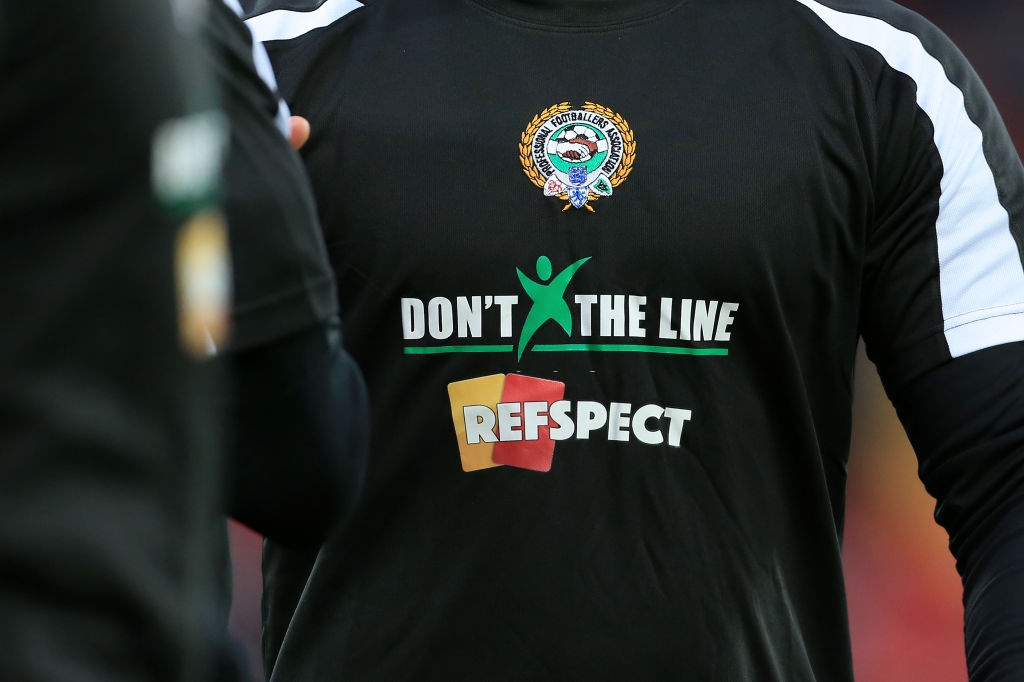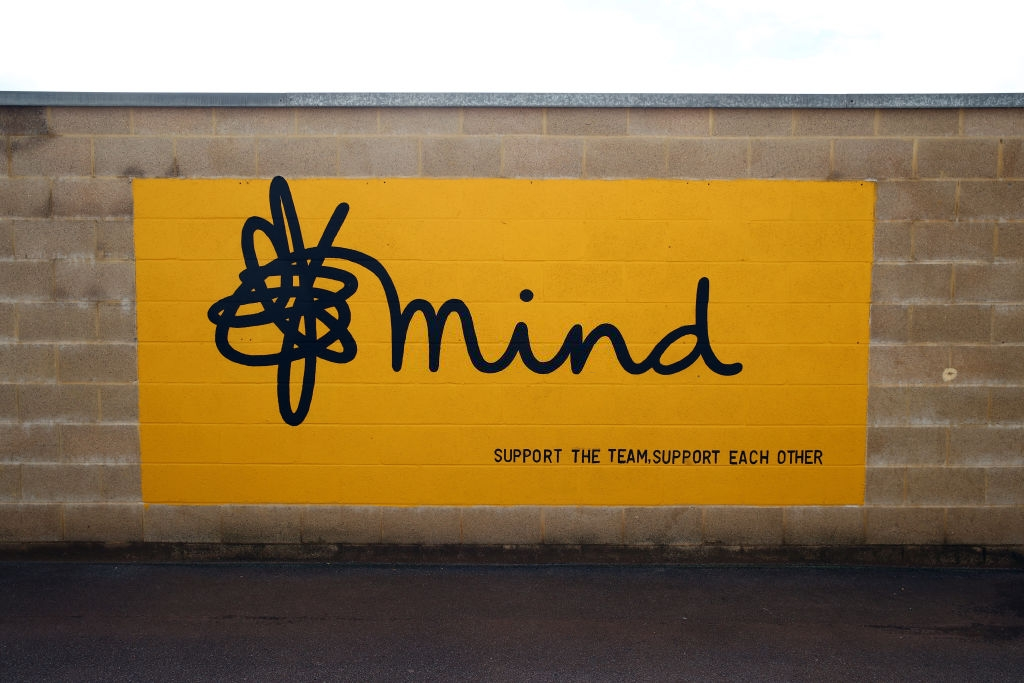Mental health in football
A series of investigative articles looking at how players deal with the struggles inside and outside of the game
Part five - The PFA and what outsiders think of them?

The PFA are always by a players side with a physical injury, but are the prepared for the mental injuries that come their way?

"Having spoken to a footballer that has approached the PFA in the past for help and support, I understand that there may be still some way to go until they are offering the level of help and support that many players need." - Johnny Sharples, ambassador for CALM.
Is enough on offer from the PFA to help players cope with mental health problems? Or is more being done to catch the media's attention instead of the players'?
The PFA are the leading body for player to go to if they have any worries, injuries or problems and they will guide players on the best route to follow. However, there is only so much they can do without being too pushy and forcing people to talk about their mental health struggles when they do not feel comfortable to do so. Therefore, it may come down to the players themselves helping their teammates or fellow professionals. Paul Walsh who is a physio for Sunderland AFC believes actions are bigger than anything else, he says: "I think players coming out and speaking about it is more powerful than any campaign the PFA can run because people can see that as real life and relate to them." The PFA can do as many hashtags and slogans on T-shirts, however, actions will always speak louder than words.
However, there are procedures in place for players if they feel it is getting too much for them Walsh adds: "The PFA run a programme that if the players feel they need help from outside the club they can arrange for them to go and see someone (specialists) there are processes in place for players." However, players only spend a limited amount of time at the club, so it may be easy for some to put up a front until they get home, Walsh added: "Mental health is such a broad spectrum, what players might be like in the building you have no idea what they’re like at home we only see them for 4/5 hours and they’re in work mode usually." Would it be beneficial for the PFA to offer courses in spotting the signs of putting up a front and how to open up a conversation? It is something that may benefit the PFA in the long run.
It may be easy to offer players the help they need, but It will be difficult to get that point across all different levels of the game. Therefore, it could be useful for the PFA to work more closely with charities such as MIND and CALM. Sharples, who is an ambassador for the latter says: "Looking from the outside, it's difficult to truly understand the role that the PFA are taking in helping players with their mental health." The PFA do offer services for players to talk about their mental health, but is it worth going through that and players thinking they will tarnish their careers when "the help and support that the PFA are giving them may be no different to that which they would receive if they used the services available on the NHS.", says Sharples. Is it really enough to throw a few hashtags in every now and again and get players to wear T-shirts? Or do the PFA need to be actively going out their way to tackle mental health in football and offer obvious guidance and help, like they do with physical injuries?
It is such a 'taboo' for many people still so it is still dangerous waters for the PFA to tread in. However, they may need to take the plunge into the unknown and potentially save a players career or life if they can offer a pathway for players to talk about their mental health struggles that does not feel embarrassing, which could work alongside a charity, such as CALM. Sharples explains what CALM is and how they could work effectively with the PFA: "A collaboration with somewhere like CALM would enable them to speak openly about their issues while also feeling like they are helping others, signposting them to the services that CALM offer and sharing their message and encouraging fundraising and donations to a charity that are helping others."
As anyone who has suffered from mental health problems it is never as easy to just talk, no matter how many people say that's what you have to do, there's much more attached to it than just having a conversation. There is still a stigma around mental health in society and especially with men who struggle to speak up and say they are hurting. Football is seen as a man's game by many people and with the levels of homophobic and racist abuse still rife, it seems this old fashioned view and fan still dominates, which makes it very difficult for players to speak out: "A key concern for sportspeople who are still playing and competing is the impact that revealing or asking for support for a mental health problem can have on their careers showing there is clearly still a stigma attached to mental health." says Hayley Jarvis, head of physical activity for MIND. Hayley believes the PFA do a lot to offer support for players and it is something more out of their control which stops as many players coming forward and speaking up, and knows educating people on mental health and that it is normal is something key. Hayley adds: "The Professional Footballers Association, for example, provides a 24 hour helpline and access to counselling through the charity Sporting Chance, alongside education sessions with players."
It is a mixture of players not comfortable coming forward, not enough obvious routes to help players and a social stigma attached to mental health that are the main causes of mental health not being spoken about enough in football.
However, at certain clubs managers and owners put what is really important before football. Lee Allinson who spoke about abuse in football and spoke about his experiences with both himself and players. He says: "One of my players not so long ago split up with his girlfriend and said he had a lot of problems and wasn’t feeling too good at all and I was on the phone to him for about 45 minutes just trying to have a chat with him and try to make him feel better." Therefore, could coaches be the bridge between players' mental health and being comfortable talking about it, well Allinson believes that is a key skill for any manager, he says: "The one thing I said is it’s not about your coaching skills at times as a manager now it’s how you manage people and how you talk to people. I’d like to think I pride myself on being very approachable and people can come and talk to me know matter what the issue is. What might be small to one person could be really big for another person."
The PFA are seen as the leading organisation for players to go to if they need help or guidance. However, it remains unclear how much support they are offering to players up and down the footballing pyramid. Should they be looking to players that have already spoken out to be leading campaigns and enforcing the idea that actions are louder than words? Could they work more closely with clubs to possibly have someone from the PFA stationed at every club so the players know there is someone at their workplace who they can talk to? Charities such as MIND and CALM seem to be waiting with open arms for the PFA to reach out and work closely with them to step up the fight against mental health problems.
This series of articles has uncovered a lot of home truths about mental health in football and how sometimes it is what's said nowhere near the pitch that impacts players the most. It was unearthed how players have had to adapt to life with social media and life during lockdown and how it has opened up a new world for footballers with the likelihood of struggling with their mental health increasing. Hopefully, a lot can be learnt from this and steps can be taken to fight the 'taboo' around mental health with the PFA and FA willing to take a strong stance on mental health in football, especially in the men's game.
The PFA and FA were contacted but failed to comment.
